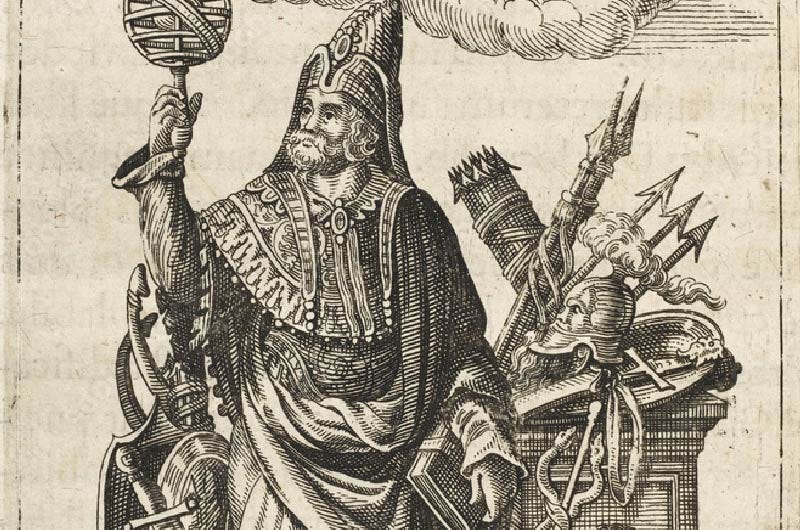Hermes Trismegistus and Hermeticism in the Hellenistic World: Nature as a Reflection of the Divine
Research Intro Post #1
My topic of research for HIS 467 is Hermeticism, a philosophical and religious tradition that emerged out of the Hellenistic world in the early centuries of the Common Era. Hermeticism is a belief system heavily intertwined with the interconnectedness of the universe in the natural world and the power of the human mind and soul. It teaches that the land is a reflection of a higher, divine existence and that everything in the natural world radiates energy. One of Hermeticism’s important ideas regarding the land is that God placed human’s there to cultivate and improve upon His creation. Thus, Hermeticism is heavily tied to the natural world, making it a good topic of research for this project.
Specifically, in my research posts, I want to dive into the teachings of Hermes Trismegistus (translated: Hermes, the Thrice Greatest), and its connections to the natural world found in a compilation of texts known collectively as the Hermetica. Hermes Trismegistus is a cross-cultural mythological figure from Greek and Egyptian culture; a combination of the Greek god Hermes and the Egyptian god Thoth, which were often considered to be analogues of one another by the Greeks and Egyptians. Ultimately, the name of Trismegistus (what I will refer to Hermes Trismegistus as for the sake of brevity) is not attributed to any one person in particular. In fact, the moniker is attributed to many different figures across time and cultures, and his existence as a human versus a god is debated today. Regardless of his true identity, though, the teachings of Hermes Trismegistus have acted as a religious and spiritual guide to many cultures across the world, and his philosophies are present in the three Abrahamic religions.
The Hermetica, the central collection of texts in Hermeticism, is something I’ve dug into a bit as well. The Hermetica is traditionally divided into two parts: the philosophical Hermetica, known as the Corpus Hermeticum, and the technical Hermetica. The Corpus Hermeticum consists of 17 books all claimed to be written by Trismegistus in between 100-300 CE, that discuss mankind’s relationship with God, the cosmos, the natural world, and the means by which humans can ascend to a higher state of being through the pursuit of knowledge. Trismegistus presents readers his philosophy often through transcripts of discussions between himself, the Greek god of medicine Asclepius, a figure often considered to be Trismegistus’ son, Tat, and other characters.
On the other hand, the technical Hermetica delves more into what is considered the occult side of the Hermetic tradition. These texts teach practices of alchemy, magic, astrology, and theurgy (unity with the divine). According to Hermetic tradition, these are the methods by which humans can ascend to a greater existence, but not without extensive study and dedication to pursuing knowledge. The dynamic of the two sections is that the philosophical side of the Hermetica explains the relationship between God, humans, the natural world, and the means of enlightenment, while the technical side helps practitioners put it into practice.
The above information is a surface level summary of some of my research so far, so for the most part, it’s pretty general. As I progress in my research, I plan on focusing on specifically Trismegistus’ teaching about the natural world that appears in the Hermetica and how they were adopted by different cultures of the Hellenistic world; specifically, I want to look at Greece, Egypt, and the Middle East. From the sources I have checked out, there are records of many groups in this area of the world putting Trismegistus’ teachings into practice and following his belief system. I still have some questions about each culture’s specific connections to the Hermetica, but I hope to answer them with my research.
Here’s a list of the sources I’ve found so far that were used to make this summary:
Primary Source:
https://www.magicgatebg.com/Books/The%20Corpus%20Hermeticum.pdf (The Hermetica)
Secondary Sources (all created from academic sources):
http://www.gnosis.org/hermes.htm#notes
The Secret History of Hermes Trismegistus : Hermeticism From Ancient to Modern Times by Florian Ebeling


